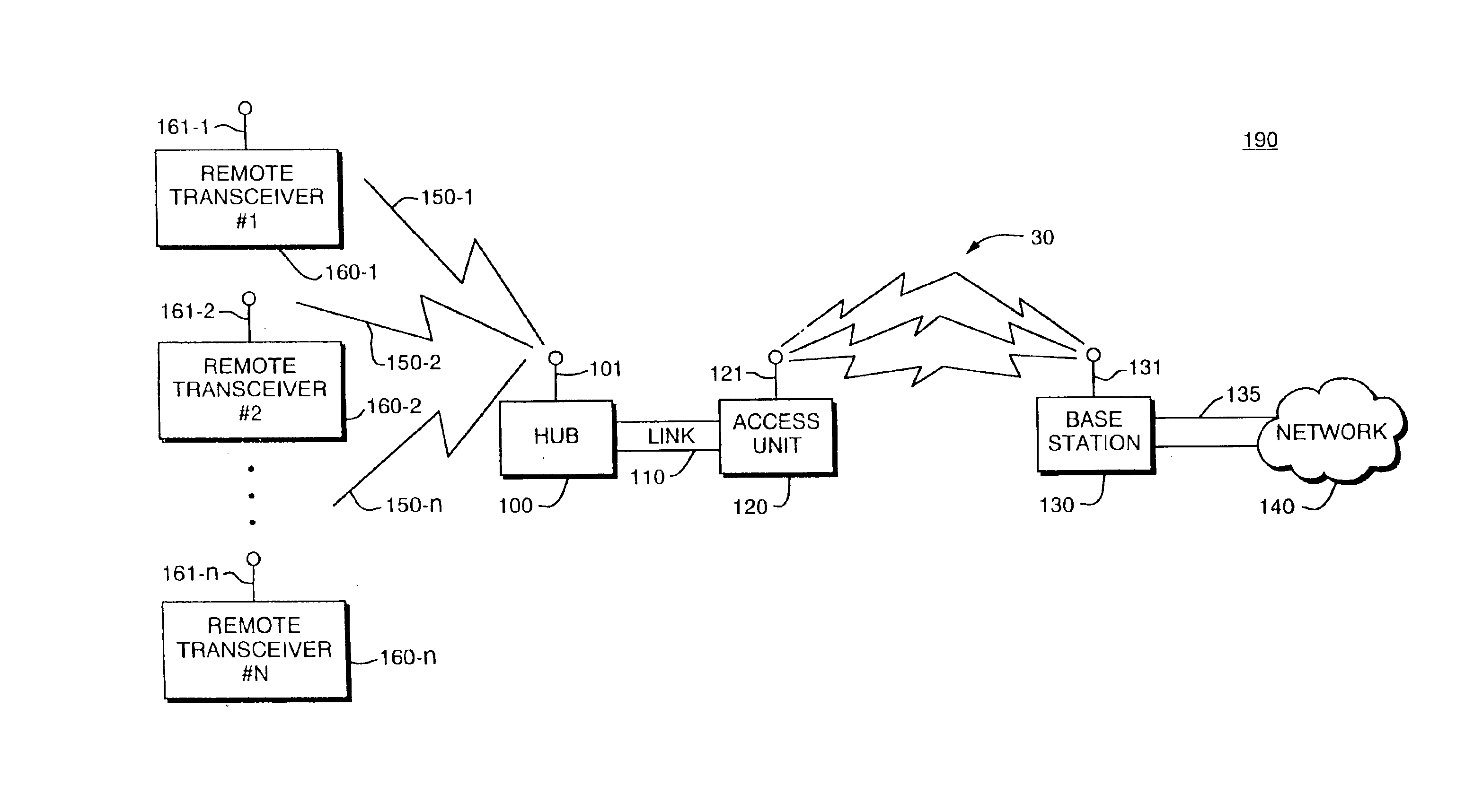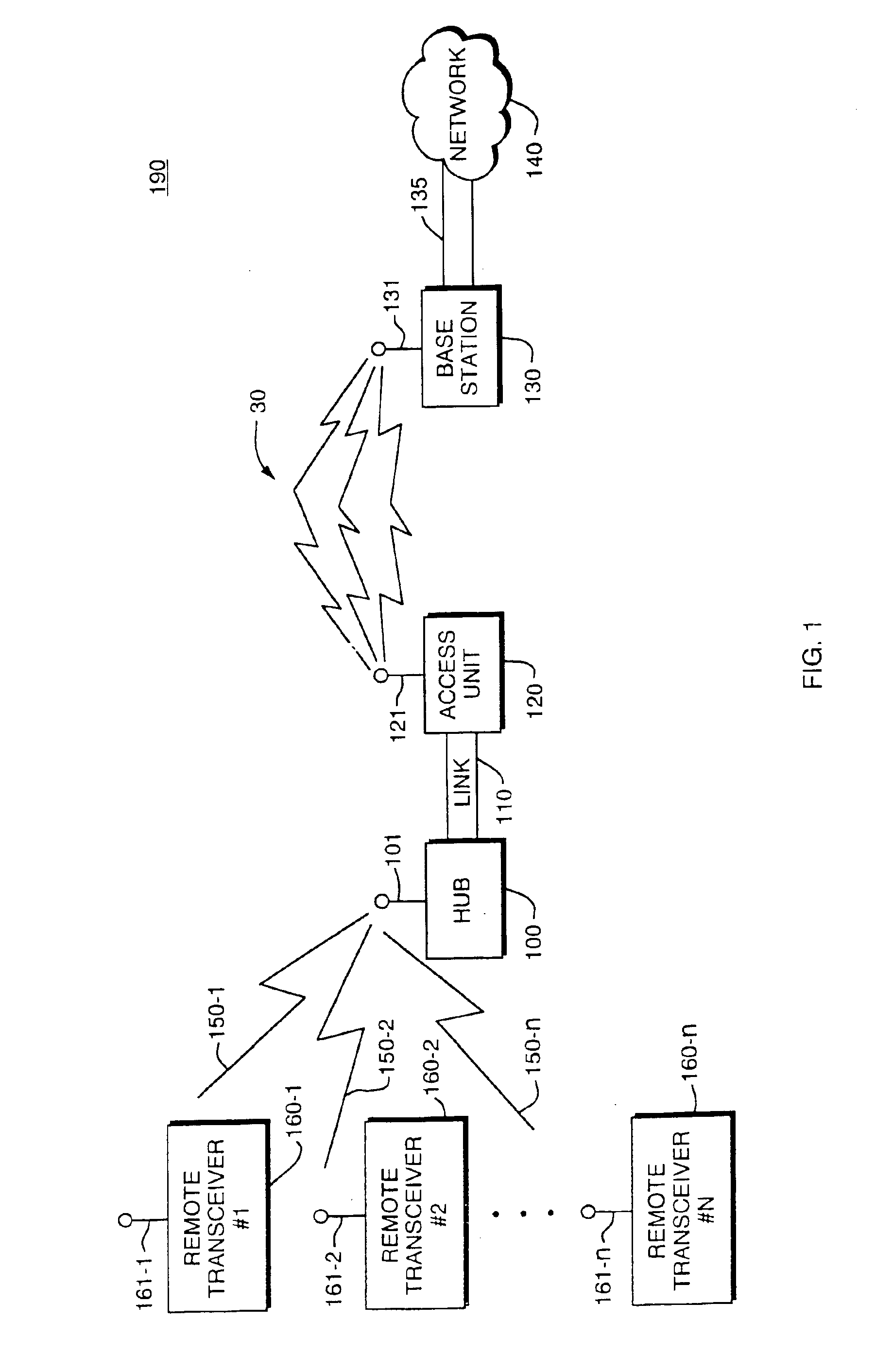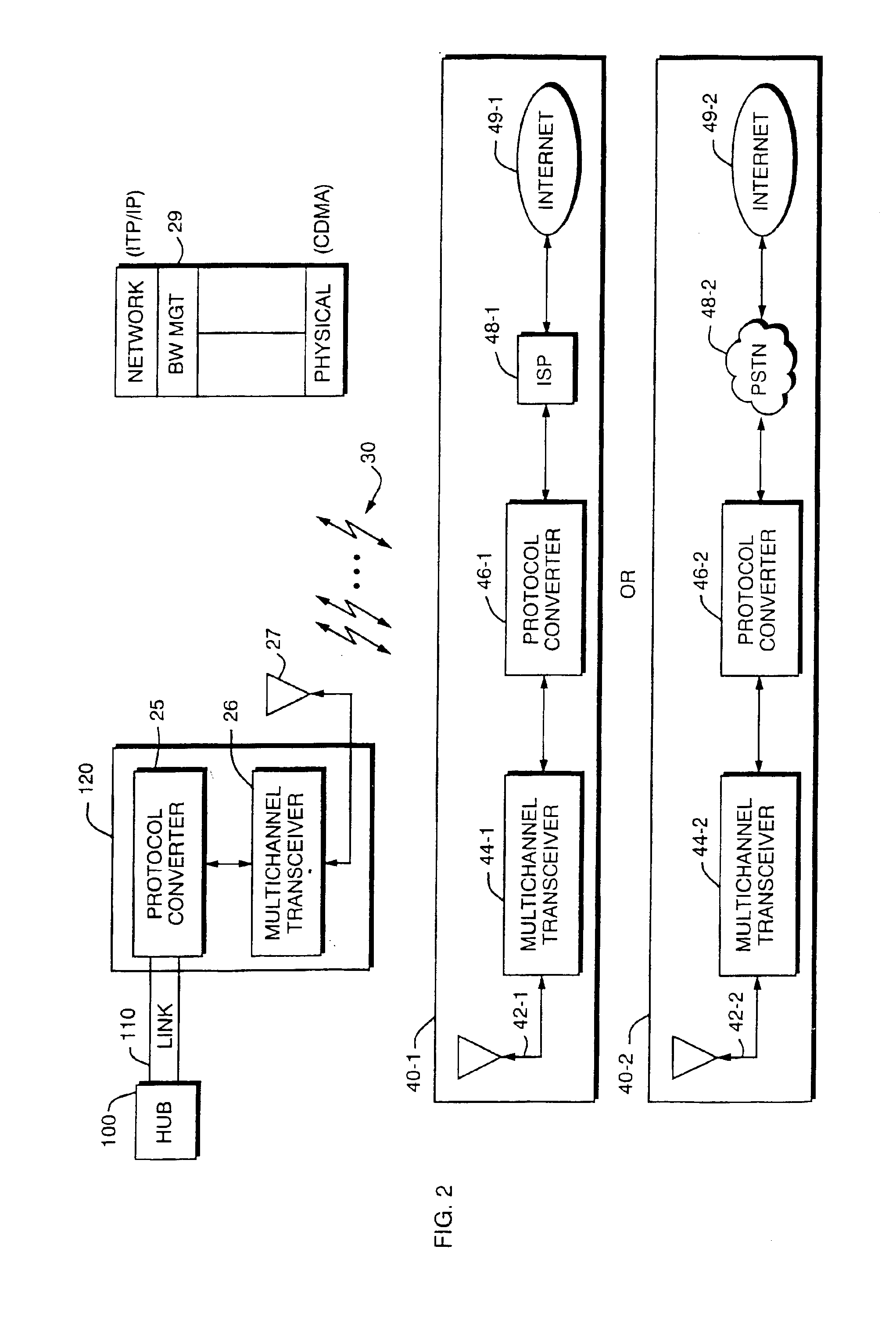Two tier hi-speed wireless communication link
a wireless communication link and hi-speed technology, applied in data switching networks, instruments, frequency-division multiplexes, etc., can solve the problems of high single wireless link subscription in addition to being slow, etc., to reduce the overall cost of communication links and reduce the cost of wireless communication services
- Summary
- Abstract
- Description
- Claims
- Application Information
AI Technical Summary
Benefits of technology
Problems solved by technology
Method used
Image
Examples
Embodiment Construction
FIG. 1 is a block diagram of a system for implementing high speed data communication over multiple media types according to the principles of the present invention. The system 190 includes a plurality of remote transceivers 160 in eventual communication with network 140.
Remote transceivers 160 typically connect to terminal equipment (not shown) such as a portable or laptop computer, a desktop computer, a Personal Digital Assistant (PDA), a ‘wearable’ computer or the like. Each remote transceiver 160 supports communication with hub 100 over a first type of wireless communication link 150. For example, information to be transferred from remote transceiver #1 160-1 is converted to a format suitable for transmission such as in accordance with known communication standards. In the preferred embodiment, terminal equipment coupled to each remote transceiver 160 transmits and receives data based on a TCP / IP or other standard network protocol. In particular, network messages from remote tran...
PUM
 Login to View More
Login to View More Abstract
Description
Claims
Application Information
 Login to View More
Login to View More - R&D
- Intellectual Property
- Life Sciences
- Materials
- Tech Scout
- Unparalleled Data Quality
- Higher Quality Content
- 60% Fewer Hallucinations
Browse by: Latest US Patents, China's latest patents, Technical Efficacy Thesaurus, Application Domain, Technology Topic, Popular Technical Reports.
© 2025 PatSnap. All rights reserved.Legal|Privacy policy|Modern Slavery Act Transparency Statement|Sitemap|About US| Contact US: help@patsnap.com



